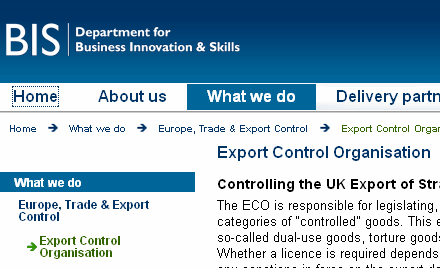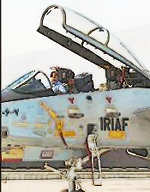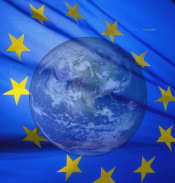 Computerworld posted a story today on Microsoft and the other Internet heavy hitters Google and Yahoo! shutting down instant messaging services to countries subject to U.S. economic sanctions, i.e., Cuba, North Korea, Syria, Sudan and Iran. (I reported the Microsoft story last week). In the course of the Computerworld article, the reporter interviewed an unnamed lawyer who allegedly “advises companies on OFAC compliance” and who gave some advice that frankly I think is questionable. The lawyer said that
Computerworld posted a story today on Microsoft and the other Internet heavy hitters Google and Yahoo! shutting down instant messaging services to countries subject to U.S. economic sanctions, i.e., Cuba, North Korea, Syria, Sudan and Iran. (I reported the Microsoft story last week). In the course of the Computerworld article, the reporter interviewed an unnamed lawyer who allegedly “advises companies on OFAC compliance” and who gave some advice that frankly I think is questionable. The lawyer said that
while offering communications services such as IM to sanctioned countries such as Iran or Cuba is not restricted by OFAC, offering software is. That’s because software, even free apps downloadable from the Internet, are considered exportable goods, and thus can be banned by OFAC, according to the lawyer, who requested anonymity.
By that reasoning, Web-based e-mail such as gMail or Windows Live HotMail can’t be banned by OFAC, he said. Nor would pure cloud-based services such as Salesforce.com or those hosted by Amazon.com’s EC2 be affected by the ban.
However, Windows Live Messenger, which relies on a user download, can be, he said.
Er, no. I am really hoping that the reporter misunderstood the lawyer, who I assure you wasn’t me, and that a lawyer who is advising people on OFAC matters didn’t really say that. For starters, and this is on the first page of OFAC for Dummies, the sanctions regulation for Cuba, North Korea, Iran, Sudan and Syria, forbid the exports of both goods and services. So the dichotomy between the two drawn by the lawyer requesting anonymity is flat out wrong.
The issue in looking at the provision of Internet content and services to sanctioned countries, then, isn’t whether goods or services are exported but is whether what is being exported to the sanctioned country is subject to an exception in the regulations. As to software, the question is whether such software is exempt as informational materials, both under OFAC rules as well as the rules of the Bureau of Industry and Security, which also forbid exports to these countries. Although perhaps not consistent with the Berman Amendment which required export agencies to exempt informational materials, computer software (other than uncompiled source code) has not been treated as informational material by OFAC or BIS. Exports of software to sanctioned countries have also served as the basis for criminal prosecutions.
The provision of internet services to sanctioned countries would also be prohibited unless covered by a specific exemption or general license. The sanctions regulations do exempt “telecommunication services,” but that exemption is narrowly construed to cover traditional communication by telephone and not other means of communication. An OFAC guidance regarding the provision of internet connectivity to Iran makes clear that such activity required a specific license. The same logic would apply to the provision of email and IM services.


 Posted by
Posted by  Category:
Category: 

 A
A 
 Computerworld posted a
Computerworld posted a  The E.U. has issued a
The E.U. has issued a 

